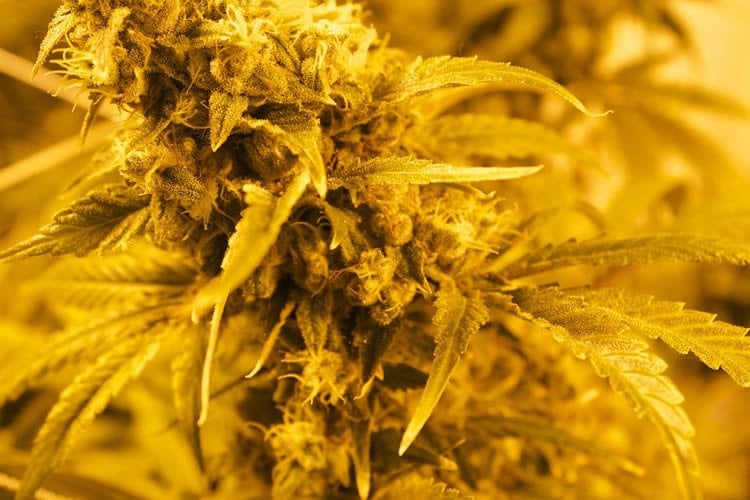Summary: Schizophrenia risk may predict cannabis use, rather than the other way around, a new study reports.
Source: University of Bristol.
The study from the University of Bristol comes on the back of public health warnings issued earlier this year by scientists who voiced concerns about the increased risk of psychosis for vulnerable people who use the drug. Those warnings followed evidence to suggest an increased use of particularly high potency strains of cannabis among young people. However, experts cautioned that the risks should not be overstated given the need for greater research into links between mental health and illicit drugs.
This latest study from Bristol’s School of Experimental Psychology sheds fresh light on the issue, while still cautioning that the results ought to be considered in the wider context of other contributing factors of mental health.
While some evidence was found to support hypotheses that cannabis use is a contributory factor in increasing the risk of schizophrenia, the researchers were surprised to find stronger evidence that the opposite was also likely. This adds weight to the idea that the drug may be used as a form of self-medication.
“The evidence suggested that schizophrenia risk predicts the likelihood of trying cannabis,” said Dr Suzi Gage, Research Associate with the MRC Integrative Epidemiology Unit. “However, the relationship could operate in both directions. Our results don’t really allow us to accurately predict the size of the effect – they’re more about providing evidence that the relationship is actually causal, rather than the result of confounding or common risk factors.”
The study used Mendelian Randomization (MR) techniques to examine publicly available data from genome-wide association studies. MR is a form of instrumental variable analysis, using genetic variants that predict either cannabis use risk, or risk of developing schizophrenia.
MR was used as an alternative to traditional observational epidemiology in an attempt to account for other variants that may affect the association, given that people who choose to use cannabis are likely to be different from those who don’t in lots of other ways.

Dr Gage added: “Our results use a novel method to attempt to untangle the association between cannabis and schizophrenia. While we find stronger evidence that schizophrenia risk predicts cannabis use, rather than the other way round, it doesn’t rule out a causal risk of cannabis use on schizophrenia. What will be interesting is digging deeper in to the potential sub-populations of cannabis users who may be at greater risk, and getting a better handle on the impact of heavy cannabis use.
“In this study we could only look at cannabis initiation. What would really help progress this research is to use genetic variants that predict heaviness of cannabis use, as it seems that heavy cannabis use is most strongly associated with risk of schizophrenia. Once genetic variants are identified that predict heaviness of cannabis use we’ll be able to do this.”
Source: Aliya Mughal – University of Bristol
Image Source: NeuroscienceNews.com image is in the public domain.
Original Research: Full open access research for “Assessing causality in associations between cannabis use and schizophrenia risk: a two-sample Mendelian randomization study” by S. H. Gage, H. J. Jones, S. Burgess, J. Bowden, G. Davey Smith, S. Zammit, and M. R. Munafò in Psychological Medicine. Published online December 8 2016 doi:10.1017/S0033291716003172
Correction: The title was incorrect in a previous version of this post. “Casual” was used instead of “Causal” in the previous title. A big thank you goes out to Wanda Hendrix for a humorous email alerting us to the error. Thank you Wanda!
[cbtabs][cbtab title=”MLA”]University of Bristol. “Further Evidence for Causal Link Between Schizophrenia and Cannabis.” NeuroscienceNews. NeuroscienceNews, 19 December 2016.
<https://neurosciencenews.com/schizophrenia-cannabis-link-5771/>.[/cbtab][cbtab title=”APA”]University of Bristol. (2016, December 19). Further Evidence for Causal Link Between Schizophrenia and Cannabis. NeuroscienceNews. Retrieved December 19, 2016 from https://neurosciencenews.com/schizophrenia-cannabis-link-5771/[/cbtab][cbtab title=”Chicago”]University of Bristol. “Further Evidence for Causal Link Between Schizophrenia and Cannabis.” https://neurosciencenews.com/schizophrenia-cannabis-link-5771/ (accessed December 19, 2016).[/cbtab][/cbtabs]
Abstract
Assessing causality in associations between cannabis use and schizophrenia risk: a two-sample Mendelian randomization study
Observational associations between cannabis and schizophrenia are well documented, but ascertaining causation is more challenging. We used Mendelian randomization (MR), utilizing publicly available data as a method for ascertaining causation from observational data.
We performed bi-directional two-sample MR using summary-level genome-wide data from the International Cannabis Consortium (ICC) and the Psychiatric Genomics Consortium (PGC2). Single nucleotide polymorphisms (SNPs) associated with cannabis initiation (p < 10−5) and schizophrenia (p < 5 × 10−8) were combined using an inverse-variance-weighted fixed-effects approach. We also used height and education genome-wide association study data, representing negative and positive control analyses.
There was some evidence consistent with a causal effect of cannabis initiation on risk of schizophrenia [odds ratio (OR) 1.04 per doubling odds of cannabis initiation, 95% confidence interval (CI) 1.01–1.07, p = 0.019]. There was strong evidence consistent with a causal effect of schizophrenia risk on likelihood of cannabis initiation (OR 1.10 per doubling of the odds of schizophrenia, 95% CI 1.05–1.14, p = 2.64 × 10−5). Findings were as predicted for the negative control (height: OR 1.00, 95% CI 0.99–1.01, p = 0.90) but weaker than predicted for the positive control (years in education: OR 0.99, 95% CI 0.97–1.00, p = 0.066) analyses.
Our results provide some that cannabis initiation increases the risk of schizophrenia, although the size of the causal estimate is small. We find stronger evidence that schizophrenia risk predicts cannabis initiation, possibly as genetic instruments for schizophrenia are stronger than for cannabis initiation.
“Assessing causality in associations between cannabis use and schizophrenia risk: a two-sample Mendelian randomization study” by S. H. Gage, H. J. Jones, S. Burgess, J. Bowden, G. Davey Smith, S. Zammit, and M. R. Munafò in Psychological Medicine. Published online December 8 2016 doi:10.1017/S0033291716003172






